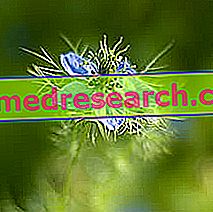It is said that good information is the best medicine, however, just like drugs, information given lightly or incorrectly can turn into poison. This simple concept of openness, which intends to empower anyone who disseminates health information and make those who read it aware, is as timely as ever in the era of web 2.0, where the possibility of publishing documents is within the reach of anyone and the search for increasingly widespread medical information. . Hence the need to draw up a series of guidelines and general rules for assessing the reliability of medical information learned on the web, making the most of its many resources.
Index
- Rule 1: the web CANNOT replace the doctor-patient relationship
- Rule 2: the reliability of information is the fundamental requirement to avoid the dangers of the web
- Rule 3: do not replace the attending physician
- Rule 4: use Blogs and Forums in the best way
- Rule 5: mastery of the language and abbreviations used on the web
- Rule 6: maximum attention to online drug purchases
- Rule 7: maximum attention to online weight loss diets
- Rule 8: supplements are not drugs
- Rule 9: attention to natural products and alternative medicines
- Rule 10: take advantage of the resources offered by the web with serenity
[index] Rule 1: the web CANNOT replace the doctor-patient relationship
As many websites have learned to specify, the medical and scientific information disseminated on the web must be intended to improve, and not replace, the doctor-patient relationship. Although the Internet is often used just to look for the information that the doctor was not able to transmit, due to a too hasty interview, it is still unthinkable - as dangerous and absolutely incorrect - to try to get an online diagnosis. Only the doctor who knows the patient's medical history, including present and previous illnesses and disorders, familiarity with certain diseases, the results of diagnostic and objective examinations, the possible use of drugs and anything else necessary for its treatment, can indeed prescribe the most appropriate medical and pharmacological therapies. For the same reason, it is absolutely dangerous and irreverent to openly contest the diagnosis and treatment prescribed by the doctor simply based on what was learned on the web.
[index] Rule 2: the reliability of information is the fundamental requirement to avoid the dangers of the web
Although the internet represents a great and undisputed opportunity, often the scientific level of information disseminated is at least questionable. In fact, there are numerous and continually expanding Italian and foreign websites hosting information sheets on diseases, drugs and possible therapies, not to mention consulting and sales services for pharmaceutical products or supplements. How to evaluate, therefore, the correctness of all this information available on the web? The guidelines proposed by the "Health On the Net" Foundation certainly help. This international body is in fact concerned with certifying, and awarding with a recognition symbol, the websites that deal with matters relating to health and medicine in full compliance with the following guidelines:
| 1. | AUTHORS Any medical information provided and hosted by the site will be written only by medical area experts and qualified professionals, unless an explicit statement does not state that any information comes from non-medical persons or organizations. |
| 2. | COMPLEMENTARITY The information disseminated by the site is intended to encourage, and not replace, the existing relationships between patient and doctor. |
| 3. | PRIVACY Personal information concerning patients and visitors to a medical site, including identity, is confidential. The site manager undertakes to honor the legal conditions of confidentiality of medical information in compliance with the laws of the country where the server and mirror-sites are located. |
| 4. | ATTRIBUTION: DATE AND BIBLIOGRAPHICAL REFERENCES The origin of the information disseminated must be accompanied by explicit references and, if possible, by links to these data. The date of the last update must appear clearly on the page (for example at the bottom of each page). |
| 5. | JUSTIFICATION Any statement relating to the benefit or improvements brought about by a treatment, a product or a commercial service, will be supported by adequate evidence and weighted according to the previous Principle 4. |
| 6. | TRANSPARENCY The creators of the site will strive to provide information as clearly as possible and will provide an address to which users can request further details or support. This e-mail address must be clearly visible on the site pages. |
| 7. | FINANCING The patronage of the site must be clearly identified including the identities of the commercial and non-commercial organizations that contribute to the financing, services or material of the site. |
| 8. | PUBLICITY AND EDITORIAL POLICY If advertising is a source of subsidy the site must be clearly indicated. The site managers will provide a brief description of the advertising agreement adopted. Each promotional contribution and any advertising material will be presented to the user clearly to differentiate it from the original material produced by the institution that manages the site. |

Although the HonCode certificate is a very important yardstick for assessing the reliability of medical information disseminated by a website, its absence is not necessarily synonymous with poor scientific value and bad information. In fact, a website can comply with the HonCode guidelines without having ever requested certification. In the case of this site, for example, the HONCODE certification was denied because in some informative articles on the subject of doping the dosages usually used by athletes are reported.
| The reliability of information disseminated by a website is increasing |
| The informative material disseminated by the site is written by qualified professionals in the health field, for which it is possible to verify the training, the curricula and the qualification to the practice of the medical profession through web tools or possible certifications (scans of degrees and certificates, badges of registration to the order, scientific publications and so on). By connecting to the address specified in the "useful links" table, for example, it is possible to verify the belonging of a name to the order of doctors. |
| The information disseminated by the website is accompanied by explicit bibliographic references. This constraint is particularly important if the article disseminates recent scientific information, in contrast with previous knowledge or still being studied and verified. |
| The information provided must not claim to be exhaustive (or worse prescriptive) but, on the contrary, must always refer to medical consultation. |
| In the absence of institutional funding, the use of advertising from external public or private companies is inevitable to cover the costs of running a good website. Although this requirement is more than understandable, in order to avoid any conflict of interest it is important that the owners of the website and the authors themselves do not directly market products or services related to the topics covered. Likewise, they should not have direct commercial links with those who commission advertising on the website; last but not least, promotional information should be clearly distinguished from the rest of the information. |
| The date of publication and update of the published news is clearly specified and recent. |
| The website fulfills requests for clarification from visitors, providing an email address or a support telephone number, or a specific area of the site generally called "Forum" or "FAQ". |
| The website meets with the approval of visitors, institutions and health personnel. The popularity of a website can be evaluated through a specific search on search engines like google or yahoo. |
| The website appears to be up-to-date and also well looked after in the graphic aspect, it is easy to navigate and meets the standards for accessibility by disabled visitors. |
| Useful Links: |
| //services.hon.ch/cgi-bin/HONcode/browse.pl |
| It allows you to check the list of websites that have received the "HONcode" certification |
| //application.fnomceo.it/Fnomceo/public/ricercaProfessionisti.public |
| It allows you to verify that a name is part of the doctors' order |
| //www.onb.it/servizi_elencoiscritti.jsp |
| It allows to verify the belonging of a name to the order of biologists |
| //www.alexa.com/ |
| It allows to evaluate indicatively the popularity of a website in terms of page views and number of visitors |
| //www.ncbi.nlm.nih.gov/entrez/query.fcgi |
| Search engine that allows you to query Medline through the Internet. Medline is the largest and most important database of the National Library of Medicine. It is a real database, which can be consulted online, which contains abstracts and links to full-text articles drawn from the most important scientific journals around the world (most of them in English). |
| //www.salute.gov.it/imgs/C_17_pagineAree_1270_listaFile_itemName_6_file.pdf |
| List of supplements notified to the Ministry of Health. |
| //www.salute.gov.it/imgs/C_17_pagineAree_1268_listaFile_itemName_2_file.pdf |
| List of plant extracts allowed in the formulation of food supplements. |
| //www.salute.gov.it/imgs/C_17_pagineAree_1268_listaFile_itemName_3_file.pdf |
| List of plant extracts NOT allowed in the formulation of food supplements. |
| //it.wikipedia.org/wiki/Netiquette |
| Set of rules that govern the behavior of an Internet user in relating to other users through resources such as newsgroups, mailing lists, forums, blogs, social networks or e-mails in general. |
[index] Rule 3: do not replace the attending physician
The information "a spizzichi e bocconi" learned on the web, in the various magazines and commercial books, cannot and must not be confused with the cultural baggage of a professional, at the base of which there is a multi-year university course, field experience and continuous updates Thinking you know more than your doctor is likely to affect not only the health of the person concerned, but also his relationship with the doctor himself, in fact, in such circumstances, trust would be lacking, an indispensable element to follow so correct the therapies and implement the advice received also from a preventive point of view.
[index] Rule 4: Use Blogs and Forums in the best way
The possibility to take advantage of the various on-line consulting services (e-mail or forum) is often much appreciated by web surfers; this characteristic is typical of so-called blogs and forums, where - generally after registration - the user can request medical consultations directly to the authors of the articles or to professionals registered on the site.
Also in this case the rules illustrated at the beginning are valid, so the answers or solutions provided through this service cannot replace the actual visit to a doctor, which is the only action allowed to perform diagnosis and prescribe a treatment.
| When you ask a question in a forum ... |
| perform a prior search on the website to ensure that the application has not already been addressed in other discussions. |
| Provide all the necessary information to obtain a satisfactory answer. For example, specify age, sex, any existing or previous pathologies or disorders, medications and supplements taken; illustrates the symptoms in detail and reports the results of previous visits and examinations. |
| Protect your privacy and that of others: do not enter your name and surname for any reason, nor that of other people, such as relatives, acquaintances, friends or doctors; for the same reason, do not enter information easily referable to a person or a medical facility. |
| Avoid the terms illegal, harmful, miners, abusive, harassing, defamatory and / or libelous, vulgar, obscene, damaging the privacy of others, racist, classist or otherwise reprehensible. |
[index] Rule 5: mastery of the language and abbreviations used on the web
| List of abbreviations and technical terms commonly used on forums and blogs, including medical ones | ||
| Go Off Topic | Leaving the sown, going off topic | |
| banning | Expel, ban, hunt, through account suspension, a user, for example for violations of the rules | |
| blogging | Keep an electronic diary | |
| Blogger or Blogger | Telematic diarist | |
| edit | Modify; to review; rework | |
| faq | Frequent questions | |
| Flame | Discussion, which degenerates into controversy with overly bright tones, insults and personal insults | |
| Flammare | Provoke a controversy | |
| forwarding to | Forward | |
| IMO | "In My Opinion" or "in my opinion", often changed to IMHO, or "In My Humble Opinion" (in my humble opinion) | |
| linking | Connect, point to, connect a | |
| Logging | Register, sign up, log in | |
| Logout | Disconnect your account. Important in the case of shared computers to prevent other users from accessing your account. | |
| Newsletter | English term meaning 'mass electronic mail'. They serve particularly to announce the innovations of the site. They are often accompanied by advertisements, which generally lowers the quality of the site. | |
| Netiquette | More or less explicit rules of conduct. See reference in the link table. | |
| Newbie | Beginner, inexperienced user | |
| PM | » | Acronym of Private Message (private message, therefore visible only by the recipient) |
| Posts | English term for "message" in Italian. Posts are what make up a topic | |
| Post | Write on the net, insert an intervention. It comes from the English 'to post' which means to send | |
| dimension | Quote a sentence | |
| quoto | I agree with the quoted sentence or post | |
| Reply | Answer, answer | |
| spamming | Send an email message, a message or unsolicited advertising messages, including non-commercial ones, such as links to personal sites, to pursue interests that are outside the collective interest | |
| Topic | Discussion, follow-up of posts. It can also be called thread or discussionm more rarely topic | |
| Thread | Discussion, sometimes abbreviated as "3d" | |
| Troll or Flammer | Provocative individuals who discuss only to argue | |
| Trollare | Troll, deliberately provoke | |
| Up | Generally very brief message with the purpose of tracing the topic in which it is sent to the beginning of the list of topics, so that other users notice it. This practice is generally prohibited. | |
| upload | To load | |
| XD | If you look horizontally it is a smiley face | |
[index] Rule 6: maximum attention to online drug purchases
Browsing through the various websites dedicated to health, it is not so difficult to come across sales proposals that have as their object medicines, often completely lacking in quality guarantees and coming from the black market. Medicines to treat erectile dysfunctions, anorectics, anabolic steroids, antidepressants, anti-cholesterol, anti alopecia are certainly among the most popular, not to mention the countless spam emails that every day invite the purchase of drugs on the web to treat the most disparate disorders . Dulcis in fundo there are sites that offer "medicines" or "natural" products to treat serious diseases, even tumors.
Although it is illegal in Italy to sell drugs via the Internet, including those known as "over the counter" or OTC, the problem seems unchallengeable. In this regard, a greater commitment to disseminating awareness campaigns on the potential risks of similar practices is desirable. Those who buy online drugs, in fact, accept the risk of not receiving the paid product or, even worse, of receiving counterfeit medicines without adequate health checks, expired or containing toxic substances or active ingredients other than those declared, or in any case different doses from those specified. The risks in this regard are naturally greater for drugs that can only be purchased upon presentation of a prescription.
[index] Rule 7: maximum attention to online weight loss diets
On the web, one of the most popular topics in the health area is undoubtedly that of slimming diets. In this regard, we often come across impromptu professionals or those who are not legally qualified to prescribe and sign diets and food schemes, whether grammated or not. The only professional figures responsible for this task are doctors, biologists and dieticians (the latter on medical indications). No other professional figure (pharmacists and graduates in physical education included) can draw up a diet.
Relying on the dietary patterns proposed by the various websites, even when reliable and written by qualified personnel, can be dangerous, especially if there are health problems and associated diseases, such as diabetes, thyroid dysfunction or hypertension. Let us remember, in this regard, that the diet is a "tailored suit", the one that is good for one person may be too wide or too narrow to another, and in such a case it would risk causing you to stumble or take your breath away.
[index] Rule 8: supplements are not drugs
Browsing the web it is very easy to come across advertisements related to painted supplements as a real "panacea", from properties to miraculous and even curative properties. These are obviously reprehensible messages, contrary to the law and generally harmful. Many slimming supplements, for example, are described as the ideal solution for an easy, fast and effortless weight loss, validating their image with user testimonials or the classic "before and after" photographs. Then there are products that contravene not only the law, but also common sense, promising to eliminate cellulite forever, make hair grow back, increase the size of the penis, increase stature and so on.
According to the current legislature, an integrator CANNOT be attributed therapeutic and / or curative properties, and in this regard there should not be any reference. The advertising propaganda of the supplements recommended for weight reduction cannot make any reference to the time or the amount of weight lost as a result of their use; rather, it must recall the need to follow a low-calorie diet and practice an appropriate sport, avoiding a sedentary lifestyle. The advertising message must make clear an accurate reading of the warnings, if these are foreseen. Finally, the advertising of products containing natural ingredients must not exclude that there may be undesirable side effects.
| Before buying a supplement via the internet: |
| a preventive medical consultation is strongly recommended to ascertain the absence of any contraindication (including possible interactions with other supplements or drugs taken at the same time). This advice becomes even more important in the presence of particular conditions (first of all the young age, pregnancy and breastfeeding), various disorders or pathologies. |
| Check the relative contraindications, if not specified, ask the manufacturer for them. |
| Check the presence of the integrator in the list of products notified to the Ministry of Health. In this regard, see the reference in the "Useful links" table. |
| Check for the absence of allergens or substances to which you are intolerant. |
| If not specified, ask the manufacturer for the certifications relating to the raw materials used. |
| It is a wise behavior rule to be wary of those who trade products at too low prices and ask for concrete reasons to those who apply excessive rates. In any case, when comparing two products of different brands it is important to refer not only to the net weight or to the number of tablets or capsules, but also to the content of active ingredient per single tablet or capsule. When plant extracts are present, these should be titrated into the active ingredient that characterizes them (eg caffeine for coffee or guarana). |
| Research and critically evaluate the opinions of users who have already purchased and used the supplement in question, paying attention to spam. |
[index] Rule 9: attention to natural products and alternative medicines
In recent years the number of people who choose to be treated with "natural" or "alternative" products has grown steadily. The main explanations to the phenomenon are to be found in the widespread fear of encountering episodes of intolerance or allergy towards some drugs, in the side effects of the same, but also in the widespread and mostly wrong belief that the natural product is, by definition, less or for nothing harmful and free from side effects and toxic. This "legend" must necessarily be dispelled because the herbal remedies should be treated in the same way as traditional synthetic drugs. Many products of plant origin, for example, can interact with synthetic drugs altering their effects, and at the same time be contraindicated in numerous disorders and pathological or physiological conditions (pregnancy, breastfeeding, young age, senescence, etc.). It is no coincidence that phytotherapy is an allopathic discipline that uses the same principles as conventional medicine to define the most suitable treatment of pathologies, using only remedies of vegetable origin. This science, if applied to the best of the available scientific evidence, can represent a valid and useful support for the treatment of many disorders and diseases, or even replace traditional medicines (many of which derive from plant sources). Much more delicate, on the other hand, is the question of alternative medicines, so described because they are not accepted by official medical science, as they have not passed or have not been subjected to the appropriate experimental tests conducted with the scientific method. Such practices, in spite of the curative role often emphasized too lightly for commercial purposes, could therefore be ineffective or even harmful to health. Among the long list of alternative medicines, the best known are traditional Chinese and Tibetan medicine, naturopathy, homeopathy, aromatherapy, Bach flowers and Ayurveda.
[index] Rule 10: take advantage of the resources offered by the web with serenity
By applying the rules and the behaviors presented during the article, the web can become a place of in-depth analysis, news and updates, but also of support, comparison and listening. Through blogs, forums, sites and social networks, such as Twitter or Facebook, the "network" can manage to make information and at the same time establish solidarity and self-help groups. On the other hand it is said that good information is the best medicine!



